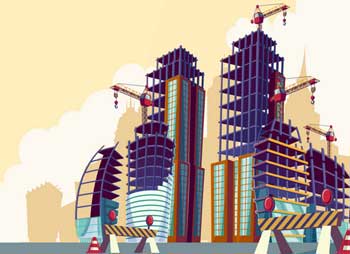– Akash Pharande –
A well-known real estate consultancy recently published a report on heavily delayed and fully stalled residential projects. It paints the kind of gloomy picture which most people tend to associate with Indian real estate these days. Since negativity sells, this report did not mention how many projects by leading developers are actually getting completed on time now.
The report also does not say much about what causes project delays. Even well-funded and credible developers can get caught in the project delay trap, and one of the main reasons is that they are unable to get environmental clearances from government authorities.
Prior to 2014, the average time it took to obtain environmental clearances was anywhere between 1-2 years, depending on the city. This was reduced to, at least on paper, to 108 days. The government went ahead to propose a flat period of 60 days for procuring the requisite clearances in its second term in order to improve India’s ranking on the ease of doing business.
Unfortunately, we are yet to see any progress here. An efficient and fast single-window approval process for environmental clearances for real estate projects is now very much overdue. The cumbersome process of obtaining these approvals can often delay a project by over 12-18 months.
Of course, this is bad news for people who have bought homes in such projects, but developers also suffer greatly because of this. Bureaucratic delays in obtaining environmental approvals and other clearances increase a developer’s overall project expense by as much as 10-12%.
Obviously, many developers have to load this extra financial burden on the final selling price, which means that homes become costlier than they need to be.
Why Environmental Clearance is Important
Environmental clearance is not just another document. It goes without saying that environmental regulations are very important and everything possible must be done to prevent them from being violated.
The Indian real estate industry does not have a very commendable track record for self-regulation in environmental management. There have been several instances where developers have flouted the rules, and their actions have a negative impact on the environment around their construction sites.
There is little doubt that real estate contributes hugely to the depletion of natural resources. Any easing of regulations must be implemented cautiously, not least of all because this government has made very serious commitments towards the issue of climate change. But while caution is necessary, there is also the larger perspective. The process of obtaining environmental clearances in India was extremely slow and cumbersome even before these commitments were made.
A Major Hurdle to Progress
Regulations around the Indian real estate sector have definitely made progress in the last decade. But still, the red tape around environmental clearances has not been resolved. The government has an ambitious vision of Housing for All. Faster approvals result in faster project completions, which result in more housing supply and therefore lower property prices.
The lack of progress here is part of a bigger problem – the ease of doing business in India. In fact, on the World Bank’s most recent rankings for Ease of Doing Business, India managed to reach only the 77th position while the aim of the government is to be among the top 50 nations.
But how likely is this to happen? Data from a couple of years ago shows us that more than 70% of buildings that were to be completed in India by 2030 are yet to be built. This is not encouraging, especially if we look at what is happening in other countries. For example, in UK, over 80% of the buildings scheduled to be finished by 2050 are already completed.
To summarise, no discussion about delayed projects is complete without looking at the bigger picture. As long as environmental clearances and other statutory permissions are not fast-tracked, there will always be projects which could not get completed – in time, or at all.
About the Author
Akash Pharande is Managing Director – Pharande Spaces, a leading real estate construction and development firm famous for its township properties in West Pune. Pharande Promoters & Builders, the flagship company of Pharande Spaces and an ISO 9001-2000 certified company, is a pioneer of townships in West Pune.
Disclaimer : The views expressed by the author in this feature are entirely her/ his own and do not necessarily reflect the views of INVC NEWS.













